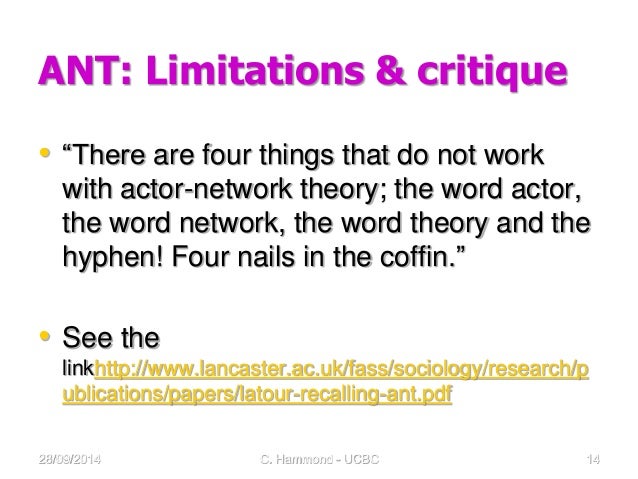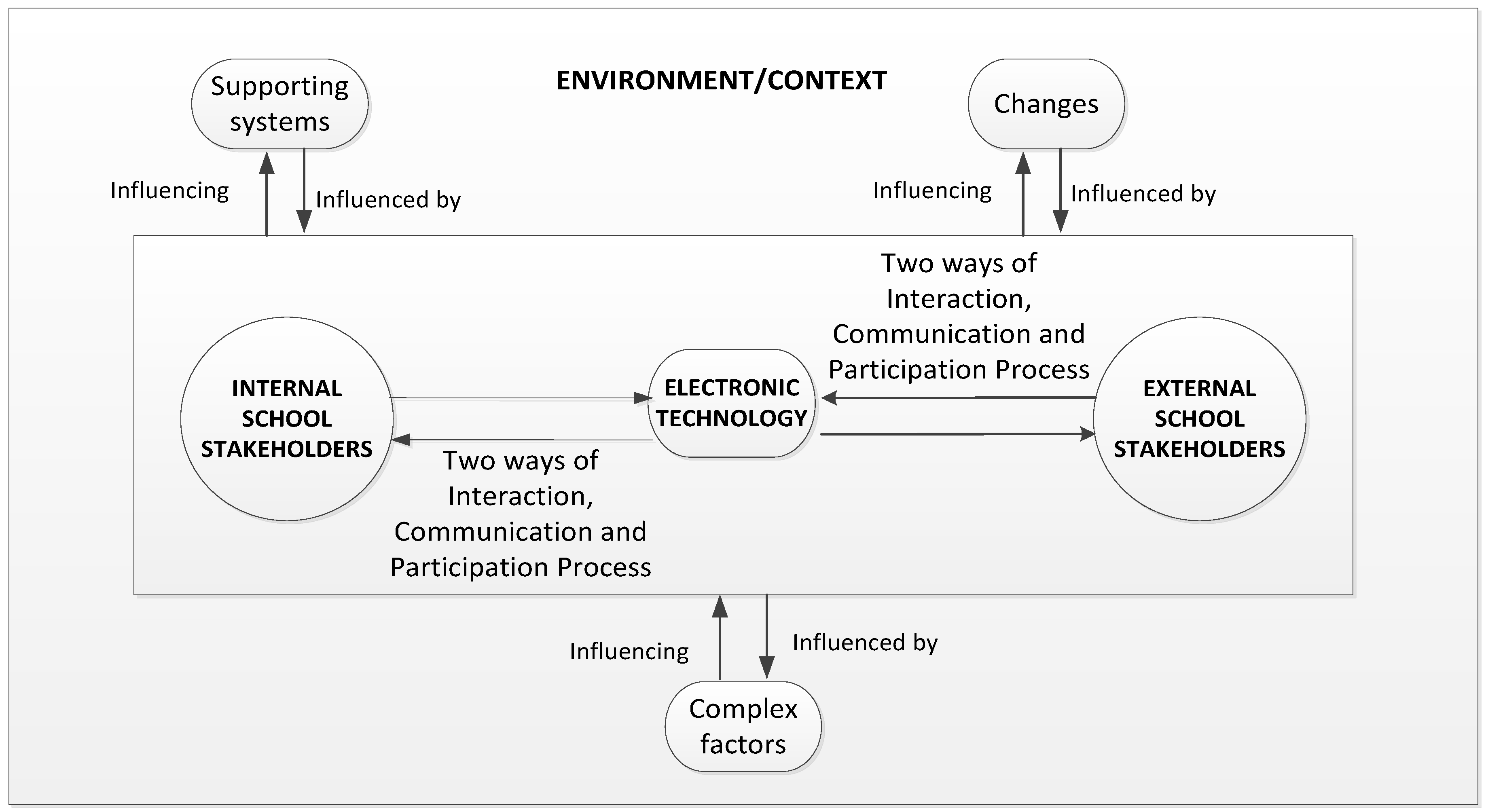
· Actor-network theory-oriented observation is related to the epistemological stance of symmetry. This means that observations are equally concerned with non-humans, and focused on understanding the processual nature of the world. Actor-network theory sensibilities inform particular types of observations. Rather than focusing on description and detail, an actor-network theory Cited by: 7 Understanding the application of Actor-Network Theory in the process of accounting change. Abstract Actor-Network Theory (ANT) has been used as a lens by a number of researchers to guide their inquiry (see, for example, Ezzamel, ; Robson, ; Lowe, ; Becker, Jagalla, and Skærbæk, ). The purpose of this paper is to provide an appraisal of the use of ANTFile Size: KB What we call nature, society, actor-network theory online dating technology form a complex network and assemblages involving various actors from molecules to humans and cities that are often hard to define and follow
(PDF) Actor Network Theory | Denisa Kera - blogger.com
Please note that some file types actor-network theory online dating incompatible with some mobile and tablet devices. If you encounter a problem downloading a file, please try again from a laptop or desktop. Please log in from an authenticated institution or log into your member profile to access the email feature.
Actor—network theory ANT is a philosophical approach to the social sciences that encourages actor-network theory online dating to analyse events as the outcomes of interacting and unstable networks of associations.
It has attracted considerable attention in the social sciences since the late s and influenced many empirical researchers, particularly in the fields of science and technology studies and more recently in social studies of finance.
Although it is neither a research method nor a methodology, like other broadly philosophical approaches to the social sciences, it does have implications for how researchers should approach social research. This entry briefly outlines some of the key features of ANT and the orientation to research that it encourages, but actor-network theory online dating primary focus is to present the strengths and weaknesses of ANT, and Looking for more information on this subject?
Check out the options shown in the left menu. You can read the long, in-depth foundation entries, read about the people that were pioneers for this subject, and other related entries in the same series.
Alternately, below is a list of all the cross references that relate to this entry, actor-network theory online dating, organised by type, or browse all series. Actor—Network Theory Search form. Search form icon-arrow-top icon-arrow-top. FoundationEntry Site Advanced 7 of By: Dave Elder-Vass Edited by: Paul Atkinson, Sara Delamont, Alexandru Cernat, Joseph W. Disciplines : SociologyAnthropologyBusiness and ManagementScienceTechnology. Online ISBN : Entry What's Next?
Search form. Download PDF. Opener Opener Cite List Share Text. Format APA Chicago Harvard MLA AMA. Copy to Clipboard.
Endnote Reference Manager ProCite RefWorks BibTeX Zotero Medlars Mendeley Word. Open Cancel. Have you created a personal profile? Login or create a profile so that you can create alerts and save clips, playlists, and searches. A Small A Normal A Large Cancel. Looks like you do not have access to this content, actor-network theory online dating. Back to Top. Methods Map Research Methods. Explore the Methods Map.
Find content related to this author.
Dating Beowulf – Studies in intimacy | manchesteropenhive

· This article compares cultural‐historical activity theory (AT) and actor‐network theory (ANT) as approaches to studying technical innovations. The concept of nature and society production in the ANT and the concept of activity in the AT have much in common as attempts to transcend the dualism between subject and object, nature and society. The symmetrical (ANT) and the dialectical (AT) Cited by: Understanding the application of Actor-Network Theory in the process of accounting change. Abstract Actor-Network Theory (ANT) has been used as a lens by a number of researchers to guide their inquiry (see, for example, Ezzamel, ; Robson, ; Lowe, ; Becker, Jagalla, and Skærbæk, ). The purpose of this paper is to provide an appraisal of the use of ANTFile Size: KB · Actor–network theory (ANT) is a philosophical approach to the social sciences that encourages researchers to analyse events as the outcomes of interacting and unstable networks of associations. It has attracted considerable attention in the social sciences since the late s and influenced many empirical researchers, particularly in the fields of science and technology studies and

Keine Kommentare:
Kommentar veröffentlichen